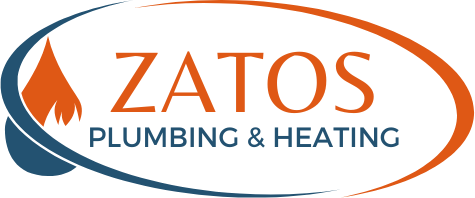FAQ
-
What is NYC Local Law 152 gas inspection?
Local Law 152 is a specific law in New York City (NYC) that pertains to gas piping system inspections. It was enacted to ensure the safety and integrity of gas piping systems in buildings throughout the city.
Under Local Law 152, building owners in NYC are required to have their gas piping systems inspected by a licensed master plumber or qualified individual with a Department of Buildings (DOB) gas qualification. The inspection must be conducted periodically, generally every five years, and a report must be submitted to the DOB certifying the inspection's completion.
The purpose of Local Law 152 is to identify any potential gas leaks, faulty installations, or other safety concerns that could pose a risk to residents' health and safety. By conducting regular inspections, the law aims to prevent gas-related incidents and promote the proper maintenance of gas systems in NYC buildings.
It's important to note that regulations and requirements may change over time, so it's recommended to consult the latest information and resources provided by the NYC Department of Buildings or a licensed professional for the most up-to-date and accurate details regarding Local Law 152.
-
When did Local Law 152 become law?
The law was originally passed in 2016 but was updated and finally implemented in 2019. To explore the Local Law 152 of 2016, click here (https://www.nyc.gov/assets/buildings/local_laws/ll152of2016.pdf). To view the Local Law 152 update in 2019, go here (https://www.nyc.gov/assets/buildings/pdf/ll_152of2016_sn.pdf).
-
Who is allowed to conduct a Local Law 152 gas inspection?
Under Local Law 152 in New York City, gas inspections must be conducted by a licensed master plumber or a qualified individual with a Department of Buildings (DOB) gas qualification. These individuals have the necessary expertise and training to assess and inspect gas piping systems by the law's requirements.
The DOB gas qualification is a certification issued by the New York City Department of Buildings to individuals who have demonstrated their knowledge and competency in conducting gas inspections. This qualification ensures that the inspections are carried out by professionals who are well-versed in the applicable regulations and safety standards.
When arranging for a gas inspection to comply with Local Law 152, it is important to engage the services of a licensed master plumber or a qualified individual with the DOB gas qualification. They will have the necessary credentials and expertise to perform the inspection and provide the required certification to the DOB.
-
Who is required to have a local law 152 gas inspection?
The law applies to all buildings, except for one- and two-family homes.
-
Can you submit Local law 152 before it is due?
All building inspections must be conducted and submitted in the year they are due. it is often recommended to schedule and complete the inspection well in advance of the deadline to ensure compliance. It's important to check the specific requirements and deadlines outlined in the local laws or regulations applicable to your jurisdiction to ensure compliance and timely submission of the gas inspection reports. Consulting with a qualified professional or contacting the relevant local authorities can provide you with specific guidance regarding the submission process for Local Law 152 gas inspections in your area.
-
What does local law 152 require to be inspected?
Local Law 152 gas inspection in New York City requires inspecting the gas piping systems within buildings to ensure their safety and compliance with applicable codes and regulations. Here are some essential requirements and aspects covered in the inspection process:
- Qualified Inspector: The inspection must be conducted by a qualified and licensed plumber or master fire suppression piping contractor. They should have the expertise and knowledge to assess the gas piping system.
- System Components: The inspection involves a comprehensive examination of various components of the gas piping system, including gas meters, risers, piping, valves, connectors, and any associated equipment or appliances.
- Ventilation: The inspection will evaluate the ventilation systems associated with the gas piping to ensure they are functioning properly. Adequate ventilation is crucial to prevent the buildup of dangerous gases.
- Compliance and Safety: The inspector will assess the system's compliance with relevant codes and regulations, such as the New York City Fuel Gas Code. They will also check for safety hazards, improper installations, corrosion, or any other issues that could pose a risk.
- Inspection Report: After completing the inspection, the inspector will provide a detailed report that outlines the findings, including any deficiencies or violations identified during the inspection.
It's important to note that specific requirements and procedures may vary depending on local regulations and the jurisdiction in which the inspection is conducted. Therefore, it is advisable to consult the official guidelines and regulations provided by the relevant authorities or engage a qualified professional familiar with the local requirements for Local Law 152 gas inspections.

